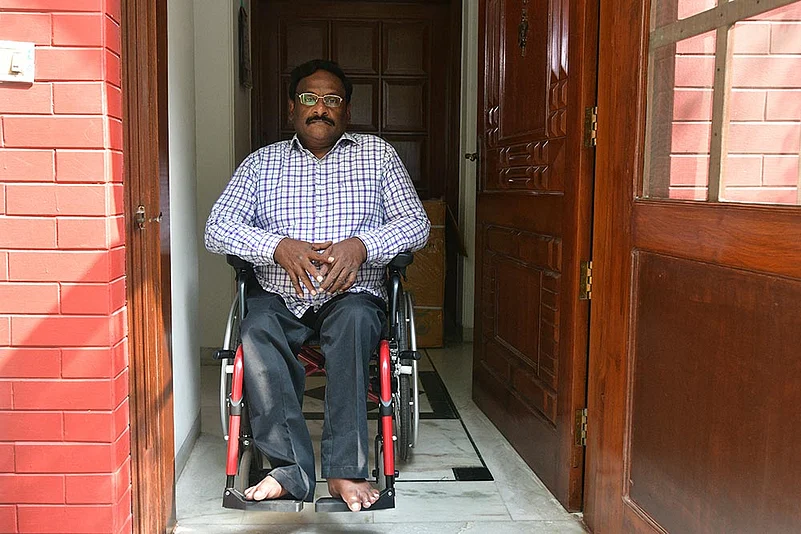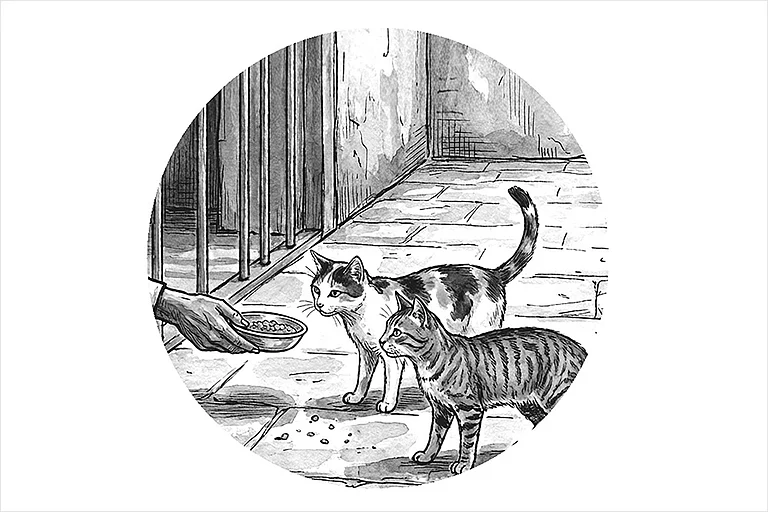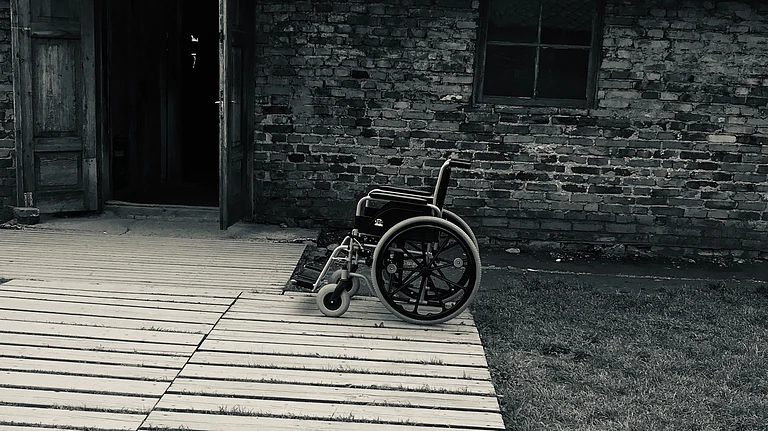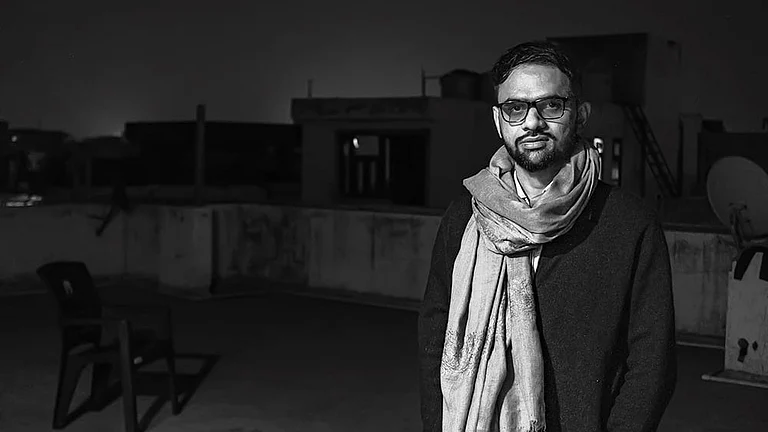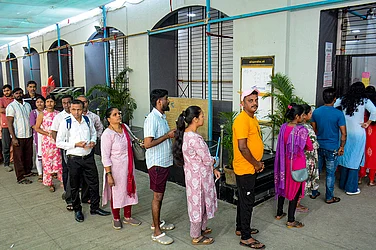Over the last few years, several human rights organisations have been demanding the release of former Delhi University professor Gokarakonda Naga (G N) Saibaba. On March 5, 2024, the Bombay High Court acquitted Saibaba along with Hem Mishra, Mahesh Tirki, Vijay Tirki, Prashant Rahi, and Pandu Narote. Five of them, inlcuding Saibaba, had been sentenced to life for alleged Maoist links. Saibaba was working on the issues of displacement of tribals when he was arrested on May 9, 2014. In April 2016, the Supreme Court granted him bail, but on March 7, 2017, he was sentenced to life imprisonment by a trial court of Gadhchiroli following allegations of waging war against the State. He spent seven years in prison following the verdict. Previously, he had spent two years in prison from May 2014 to April 2016 during his trial.
The Bombay High Court had acquitted him on October 14, 2022, but the Supreme Court suspended the acquittal the very next day. After the recent acquittal, the Supreme court dismissed the State government’s plea to stay the acquittal.
Vikram Raj spoke to G N Saibaba. Excerpts from the interview
What were the circumstances when you were arrested for the first time?
Between 2010 and 2013, many of us from Delhi and all over the world were together raising our voices against the assault on the rights of indigenous people, the Adivasis. At that time, large mining projects were signed with companies, and villages were emptied and burnt down in forest areas. There were multiple attacks on the Adivasis, basically to clear the grounds for mining and hand over the lands and forests to corporate houses.
Along with Justice Rajindar Sachar, Professor Randhir Singh, retired IAS officer Dr B D Sharma, veteran activist Surendra Mohan, and others, we formed the Forum Against War on People. I was made the convener to put together civil society groups and democratic rights groups. We were representing the issues of 8 to 9 crore Adivasis in India who were being targeted for the super profits of corporate houses. We also engaged with international bodies like the UN body on indigenous people and human rights to protect Adivasi rights and lives. In May 2014, I was kidnapped and later declared arrested in this false and fabricated case, for which I see no other reason than our efforts to raise the Adivasi issue. Now, 10 years later, we see that all those efforts were gone after my arrest.
How has the legal battle affected your life?
I have been emotionally attached to teaching from a very early age as a passionate teacher. I could not bear the idea of not being able to teach due to being in prison. Being away from class, students and campuses was extremely difficult. My arrest was under the Unlawful Activities Prevention Act (UAPA), straightaway branding a teacher as a terrorist. It stigmatised me and my family. We faced heavy repression, stigma, and emotional impact professionally and family-wise.
I was subjected to untold torture and mental trauma in prison. My body was affected in every aspect, and as a disabled person, my condition further deteriorated.
What role did your political ideology play in the accusations against you?
I don’t know what political ideology was looked at to frame me in a false case. Political ideology cannot be the ground for any legal criminal case. In a democracy under a Constitution, people are free to believe in any kind of ideology, and that cannot be the reason for any case. Different people believe in different types of ideologies, which is very amorphous.
What certain people would like to brand me as is only an attempt on their part.
“My hope and aspiration for the future is to work more on education and the rights of the people. I want to be an educator, and remain a teacher.”
How did the prison experience shape your perspective on human rights and justice?
If one is in prison, one would understand the loss of rights not only personally, but also realise that prison is like a microcosm of the entire country. It will help you understand how the rights given by the Constitution, the natural rights of human beings, the rights above the Constitution that are democratic—the rights you get as a citizen—will pave the way for larger and broader kinds of democratic rights.
Each prison, and particularly the one I was in, was a kind of prison-house of torture, violation of rights, and use of the caste system, the communal system, and every anti-human act to suppress the people locked up in the prison. This is because most prisoners, 90-95 per cent, come from the most marginalised sections of society. It gave me an idea of how important it is for every educated person, and every person with awareness, to protect the rights of the rest of the population which does not have a voice. It also told me that what I was doing before my arrest was responsible work as well as a very significant job.
What is your view on the use of violent methods for social justice?
Violence does not create anything. This I have been saying for the past 35 years. But at the same time, who is responsible for the violence is also important. This old debate of violence versus non-violence has no meaning. We cannot go on debating this. It is the work that we do for the rights of the people that matters. There is no space for the violence-non-violence debate in this. Violence is largely being perpetrated by those who have power, not the marginalised sections.
What are your plans, both professionally and personally, after the recent acquittal?
I have been a teacher from a very young age and have been living as a teacher. I would like to continue to be a teacher and die as one. Teaching is very important. I will continue teaching. As a student and a teacher of literature, I gained an understanding of the world around me, which inspired me to take the responsibility of protecting and defending the rights of the marginalised who remained so for hundreds of years in this country because of the caste system and graded social relations.
The days and nights I spent reading and writing in prison taught me that I have to do this. Education is very important, especially for the most marginalised sections like Adivasis, Dalits, minorities, and the Most Backward sections, to know their rights and progress individually, as a community, and as citizens. As long as proper education is not provided, just learning the alphabet will not help.
My hope and aspiration for the future is to work more on education and the rights of the people. I want to be an educator, remain a teacher, and work for these people. This is the decision I made inside prison, even before stepping out. Now it is my task to set this up.
A vast section is deprived of education and unaware of their rights, forced into a situation where they have to work for the day to fill their stomachs. From there, we have to take people forward, without which there cannot be progress in a democratic society.
What message do you have for individuals facing similar situations and legal battles?
We should not lose hope. These are dark times, whether you consider the fascist kind of political landscape developing all over the world, the pandemic that has created dark times, or the totalitarianism in the name of democracy that is taking grip over power centres of many countries. All of these constitute dark times and we have gone through these for more than 10 years. But if you look beyond yourself and see how the vast majority of people in the world and in the country are suffering, you will definitely come out of depression in these troubling times.
The advancement of society is not in shining buildings. The knowledge system should be democratised and given to the people so they own it. As long as knowledge is in the hands of those in power who enjoy control, society cannot progress.
MORE FROM THIS ISSUE
For all those suffering right now inside prisons or in the larger prison outside, I would like to say this with my experience of ten years of incarceration—directly over 8.5 years within the prison and the rest outside while this fabricated case was hanging over my head: We need patience, ideas, and hope, not just to look after ourselves, but to address the larger questions of the vast marginalised majority.







